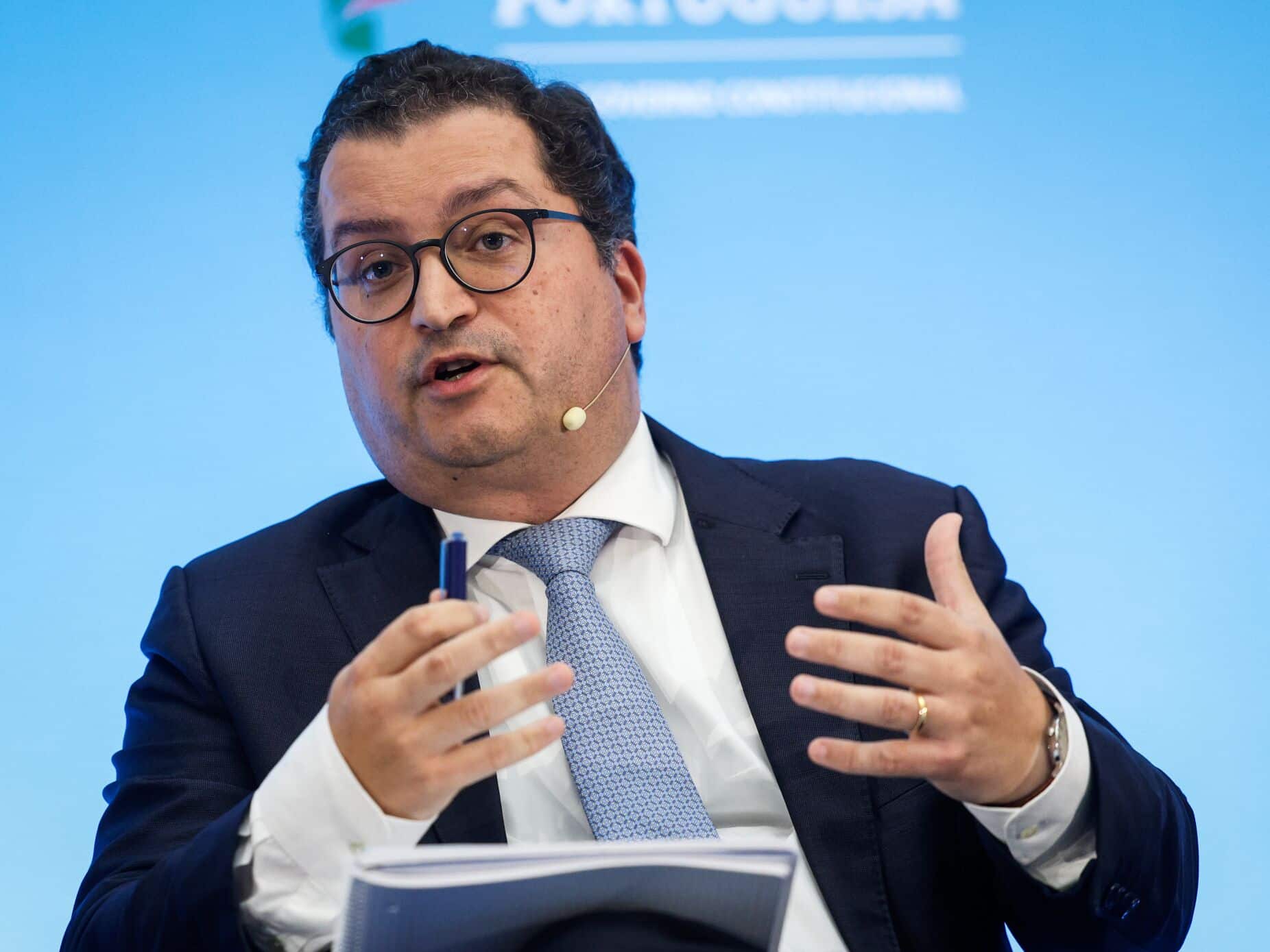Finance minister stresses 2025 State Budget “is good for country, families and people”
For all the brouhaha surrounding the minority government’s first State Budget, consensus today is that the document presented with great media fanfare yesterday afternoon will, ultimately, pass – allowing the country to move forwards, instead of being thrown (yet again) into legislative elections.
Yes, there are all kinds of ‘ifs and buts’ being thrown about today, but President Marcelo – who previously said he would be convening a Council of State immediately following the budget’s presentation – has now said this won’t be happening, suggesting he is not overly worried about a parliamentary veto.
Briefly, this budget is being presented as one that lowers taxes and reinforces earnings.
This too is a tad expedient, in that the government’s ‘unfreezing’ of reductions to the ISP tax on fuel and its various products, will actually see related prices, particularly petrol and diesel, ‘rising’ – and government ISP revenue increasing by roughly 20%.
But accepting the speech given yesterday by finance minister Joaquim Miranda Sarmento, this IS a budget in which direct taxes are not increased; in which young people’s IRS is vastly improved; in which the IRC tax on businesses falls, in which spending on health (including salaries) increases; in which plans for new hospitals – instead of being perennially delayed – are activated, and in which the government seeks to forge ahead with renewable energies projects/ green mobility/ the reinforcement of defence/ the Armed Forces and reforms within the justice/ prison system.
“This is a budget that is good for the country, for families, for people – a budget that seeks to resolve people’s problems”, Miranda Sarmento told the limited group of journalists invited to yesterday’s post-presentation press conference.
Now, the way forwards is “responsibility”, he stressed, as the various measures are analysed by parties ahead of a general debate/ vote at the end of the month (October 30 and 31 being the dates set aside).
There then follows the so-called “debate in speciality” in parliamentary committees where ministers will present the budget in their particular areas.
The process will terminate with final ‘global voting’ on November 29.
Regarding the government’s calculations for growth/ public debt – these are fairly modest: the executive expects a growth this year of 1.8%, with 2.1% in 2025.
According to the document the government forecasts a surplus in public accounts of 0.4% this year, 0.3% next – with public debt falling to 95.9% of GDP this year, 93.3% next. GDP, by the end of 2025, should reach around €294.3 billion.
All this, naturally, has been enthusiastically promoted by PSD and CDS-PP sources, not so much by any of the other parties – and it is here that doubts still lie: PS Socialists are ‘needed’ to help with this budget – either by abstaining in the final voting, or even approving it.
Without PS compliance (on the basis that an approval will work for the good of the country), the AD coalition of PSD/CDS-PP would require a vote in favour from CHEGA, the country’s third political force, and described earlier this week by the prime minister as behaving, forever, like a weather vane (in a high wind, although he did not say that part).
And this is where a lot of the noise has been coming from today.
CHEGA leader André Ventura has accused the government of having wanted to do a deal with CHEGA behind the PS’s back; Luis Montenegro has vehemently denied this – and the headlines are back with the interminable “he said, ‘no he said’, no, that’s not what happened…” as other parties’ have been giving their less sensational points of view.
Starting with the smallest, PAN has lamented the lack of focus on animals in the budget, and the extra charges as a result of ISP; LIVRE maintains the proposals “in the main give tax relief to those who are already benefiting from it”, PCP communists are lamenting the continuity of a policy of low salaries; Bloco de Esquerda is railing that “none of the policies will reduce the cost of houses”, while IL (Iniciativa Liberal) has described the budget as too left-wing.
Treading a careful line – clearly not wanting to show the PS hand so early – Alexandra Leitão (the party’s parliamentary leader) has said if the PS was in power it would have presented a completely different budget, favouring the SNS health service more, increasing pensions more and ‘focusing on other areas’”.
In an arena in which nothing is plain sailing, the way forwards is definitely not looking ‘all that bad’: commentators are describing the budget as “one of continuity” – not inspired or trail-blazing in any way, but one that toes the line and may just make it over the line, allowing the current government to reach 2025 without the prospect of new elections.
natasha.donn@portugalresident.com




















